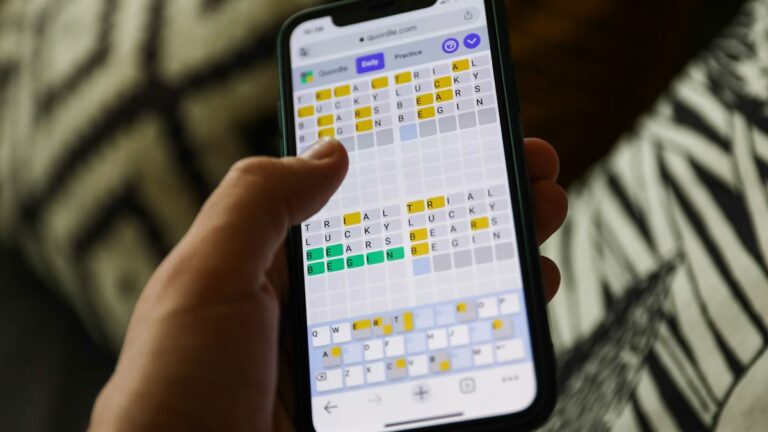Our household income looks pretty good on paper.
I earn an average of $100,000 a year as a freelance writer and editor, and my husband makes $87,000 at a full-time job with benefits.
After buying a condo in 2020, we thought we’d upgrade to a single-family house within a few years. But affording a home for our family of three (plus our dog) is no longer a realistic goal. High home prices, expensive interest rates and a lack of homes for sale have locked out homebuyers across the US, particularly in high-cost markets like ours outside of Boston, Massachusetts.
My family earns a good living with a six-figure income, yet our location and budget make a new home purchase impossible. I’ve been reporting on real estate, banking and other personal finance topics over the last 10 years, and I was determined to do the math to figure out why a $100,000 income isn’t enough to buy a home in today’s housing market.
Though there’s not much we can do to improve housing affordability on the macroeconomic level, there are steps you can take to make homebuying easier on your personal budget.
How much do you need to earn to buy a home?
Today’s housing affordability crisis, together with the high cost of basic essentials, sluggish wage growth and increasing consumer debt, is widening the generational wealth gap. In a recent CNET survey, 93% of Americans said they’re concerned about higher prices, and 27% of millennials are holding off on buying a home.
“Up until about 2020, a six-figure salary would make it relatively easy to afford a home,” said Brian Mollo, CEO of Trusted House Buyers. “However, in the past three or four years, the housing market has experienced some major changes.”
According to a report released in April by CNET’s sister site Bankrate, you need to earn at least $110,871 per year to afford a median-priced home in the US, which is around $402,343.
Average housing costs and incomes are based on national data, but every local market is different. Figures for inventory, home prices, property taxes, homeowners insurance and salaries vary drastically across the country. Buyers need the highest incomes to afford homes in California, Hawaii, the District of Columbia, Washington and Massachusetts, according to Bankrate.
Why your location matters
In my state of Massachusetts, you would need to earn at least $162,471 to comfortably afford a home. Technically, that means we should be able to buy a house now.
After going over the numbers, I realized it’s not that simple.
The typical selling price of a single-family home where I live is $599,950. Property taxes and homeowners insurance cost around $746 per month combined. If we made a 20% down payment and took out a home loan at a 7% interest rate, our monthly mortgage payment would be $3,939 — a whopping 90% higher than the $2,070 we pay now (which includes principal, interest, property taxes, homeowners insurance and the HOA fee).
Our budget can’t support that, and finding the right house at that price isn’t easy.
My husband and I routinely look through home listings online, and single-family houses priced at $600,000 in our market usually need some updating: The bathrooms and kitchens are straight out of the 1950s, the exterior siding needs a refresh or the floors need replacement. We’d be spending more than half a million dollars on a house knowing we’d have to sink tens of thousands of dollars more into it (not to mention time and energy) just to live there comfortably.
Plus, 62% of homes in our area sell above their listing prices. So we’d probably have to stretch our budget even more to buy a home in less-than-stellar condition.
Houses in our area that don’t need major updates or renovations, also known as “turnkey homes,” usually go for around $750,000 or more. Assuming we got a 7% interest rate, made a 20% down payment and had to cover higher property taxes, the mortgage payment would be around $4,738, or one-third of our gross income. Utilities and maintenance are likely more expensive on these homes, too, so we’d need to adjust our budget accordingly.
With a household income of $187,000 and no other debts, a bank might approve my family for a home loan. Our budget contains some major line items that make such a large mortgage payment unrealistic.
That brings me to my next point.
Why your budget matters
We all pay for basic needs like groceries, utilities and housing costs, but budgets vary widely from one household to the next, and we all have different priorities.
Here’s where my family stands. After putting money aside for taxes, retirement contributions and college savings, we bring home $9,300 a month, which is then split into the following categories.
| Budget | % of disposable income |
| Housing payment | 25% |
| Car insurance, groceries, gas, utilities | 23% |
| Household needs, home projects, clothing, entertainment | 22% |
| Day care tuition, child costs, dog’s medical expenses | 30% |
A debt we recently paid off also impacts our current budget. Between 2016 and 2020, we cleared $150,000 in student loans by putting all our extra money toward the principal, which impacted our savings accounts. Now, we’re making up for it by contributing more to retirement and our emergency fund each year.
Technically, we could lower some of our costs. For instance, we could put our daughter in a cheaper school and put less money into our savings to afford a larger home. Instead, we decided to prioritize retirement savings, our daughter’s education and small splurges (like occasional vacations).
Why your lending profile matters
Our lending profile, including our credit score, outstanding debts and monthly income, also impacts our home purchasing options.
For example, if you have a lower credit score, your mortgage lender might give you a higher interest rate on what you borrow, which lowers the amount you can spend on a home. If you have multiple debts, that increases your debt-to-income ratio, which also puts a dent in your housing budget.
My husband and I both have excellent credit and no debts aside from our housing payment. Because I’m self-employed, I often have to prove how much I earn and show that the income is consistent.
Over the past seven years, my income has ranged from a low of $50,000 to a high of $150,000. That means my monthly earnings fluctuate between $4,200 and $12,500, making it difficult to plan for a large mortgage payment. My husband and I decided we weren’t comfortable basing our housing budget on my variable income, so we qualified for the home loan based on his income alone.
How to make buying a home more affordable
If you think a home purchase would stretch your budget to the breaking point, you may decide to put off homebuying until mortgage rates improve and home prices go down. There are things you can do in the interim to feel more financially comfortable taking out a home loan in the near future:
- Improve your credit score to qualify for a lower interest rate
- Pay down your debt so you can afford a larger monthly payment
- Make a larger down payment, which shrinks the amount you borrow
- Create a budget and cut expenses where you can
- Refinance your debts into a lower-cost loan
There are some creative solutions you could try, too, according to Jeremy Schachter, branch manager with Fairway Independent Mortgage Corp. “If you’re a remote worker, maybe move to a lower-cost area,” Schachter said.
Or you could buy a home with a friend or relative to better afford the loan.
My husband and I don’t regret buying a condo four years ago because we snagged a super-low interest rate on a home we like, but for now, we’re hitting the pause button on a new home search until we feel more comfortable with our financial goals. It’s OK to go that route, too.




















+ There are no comments
Add yours